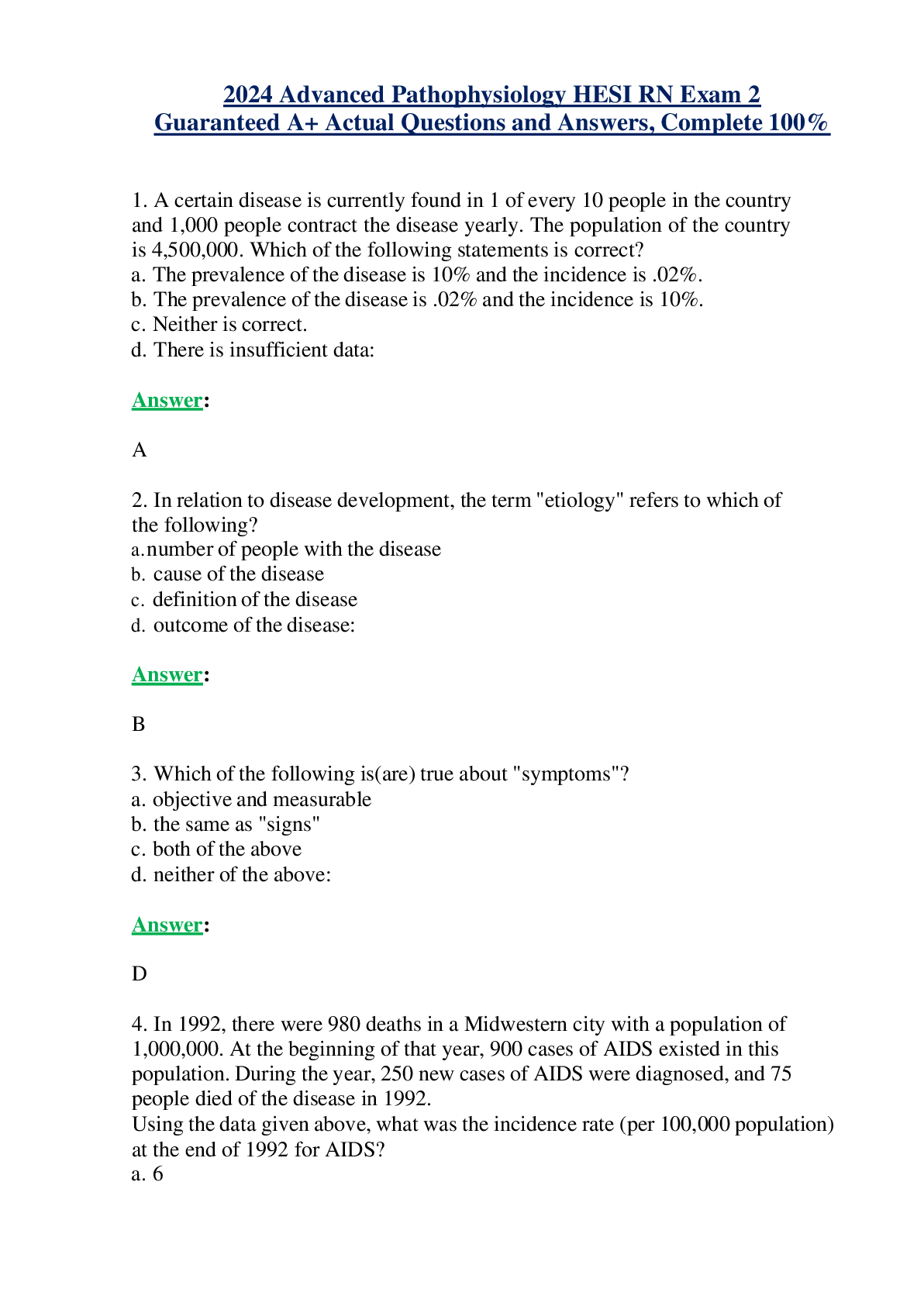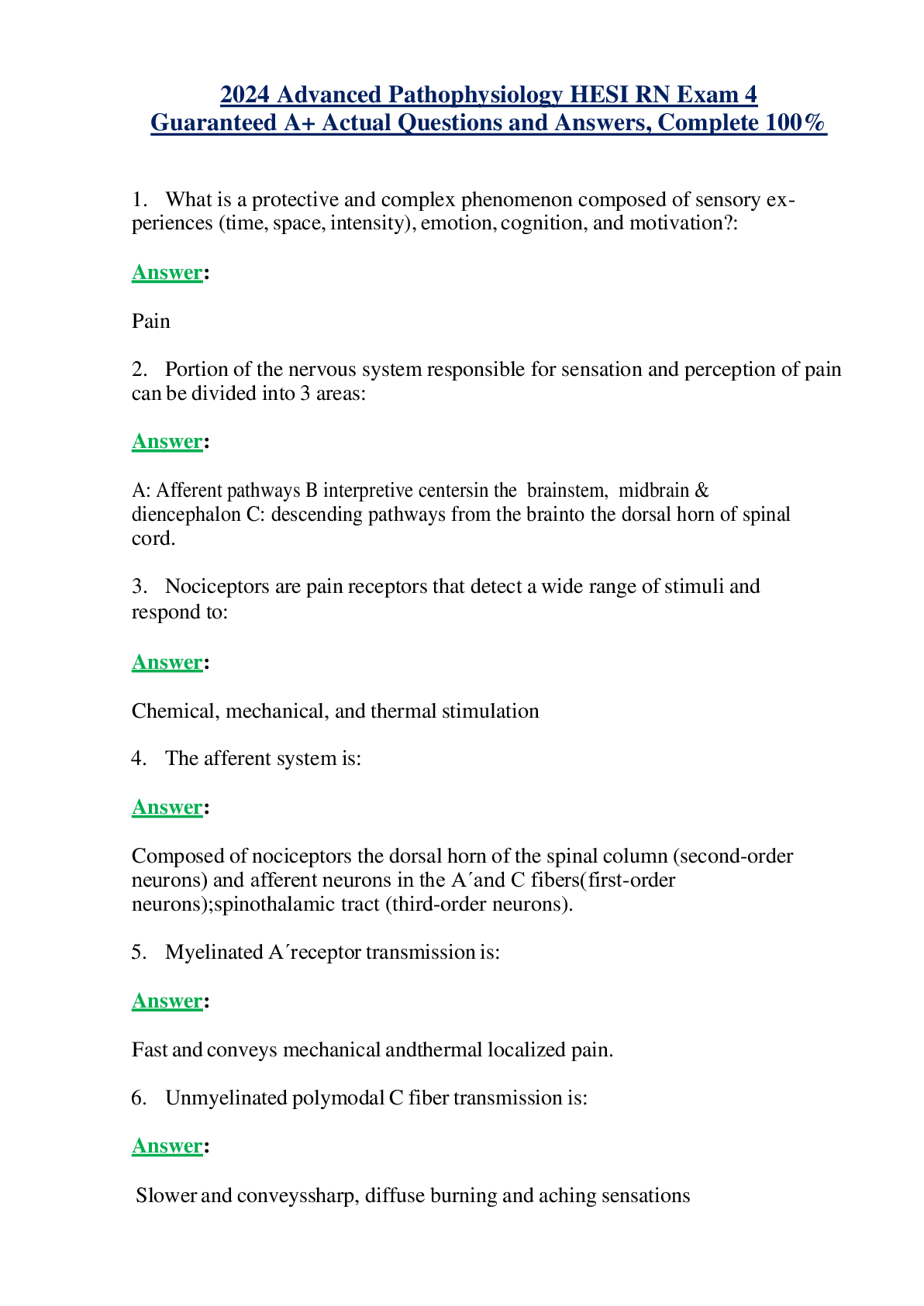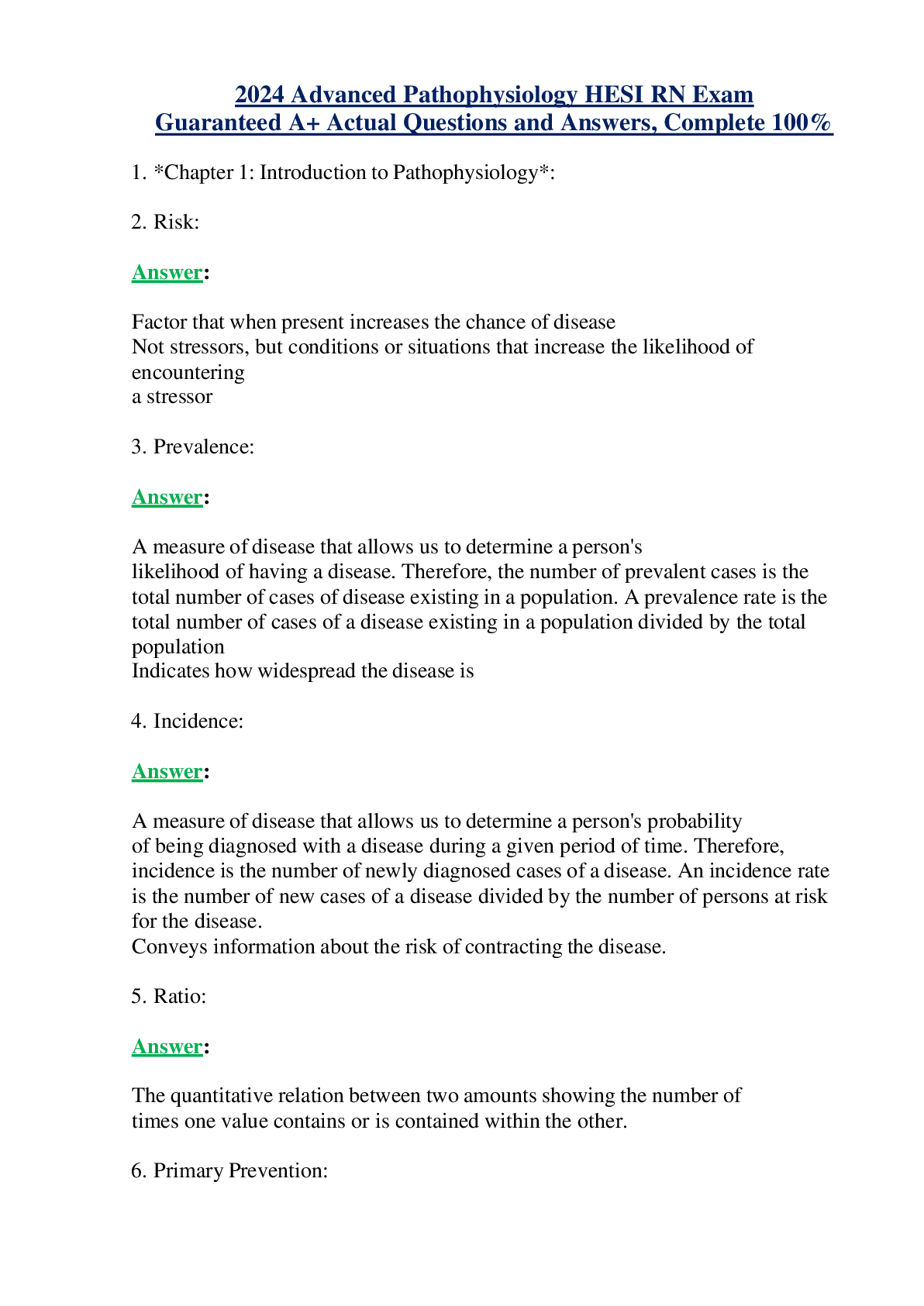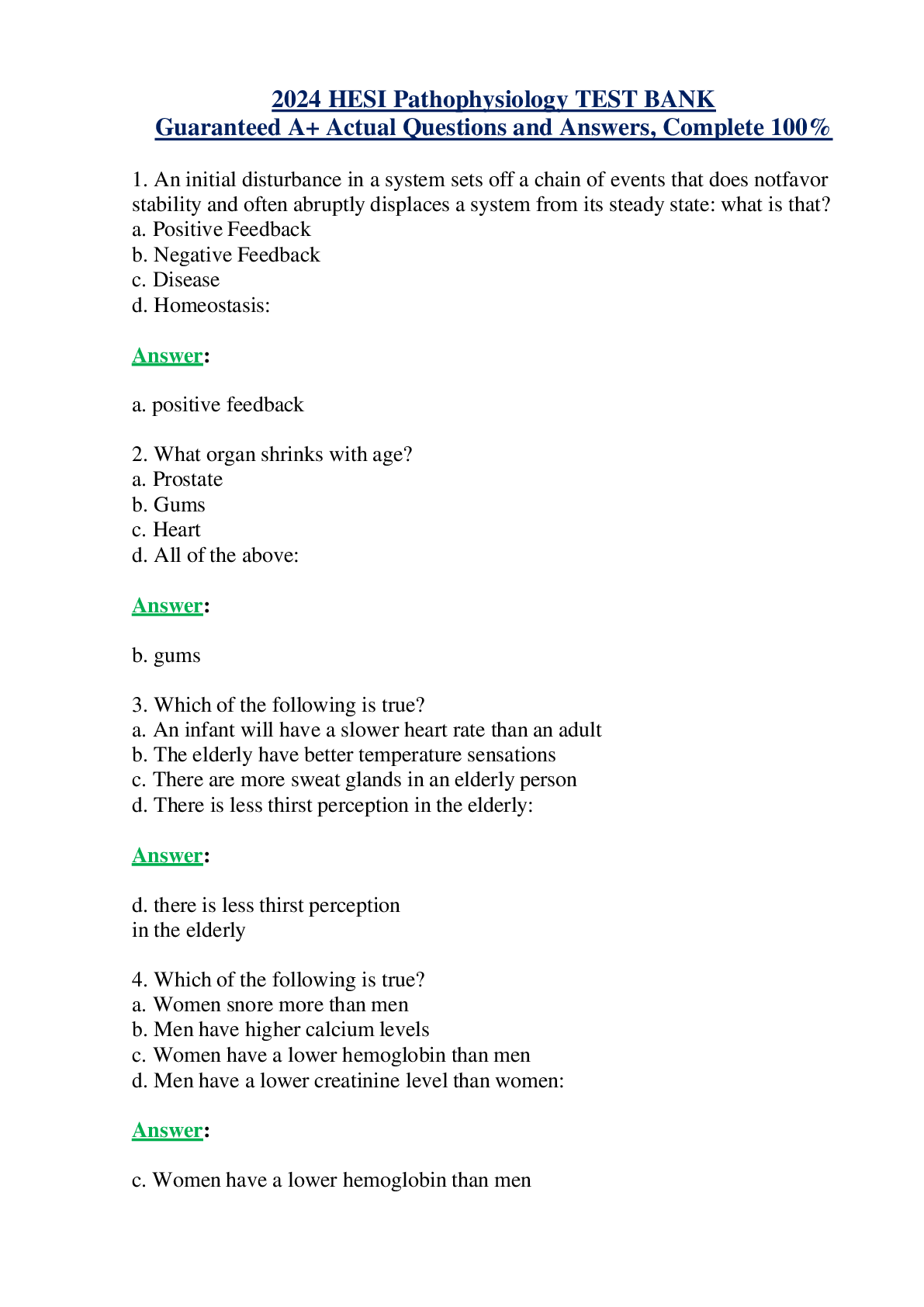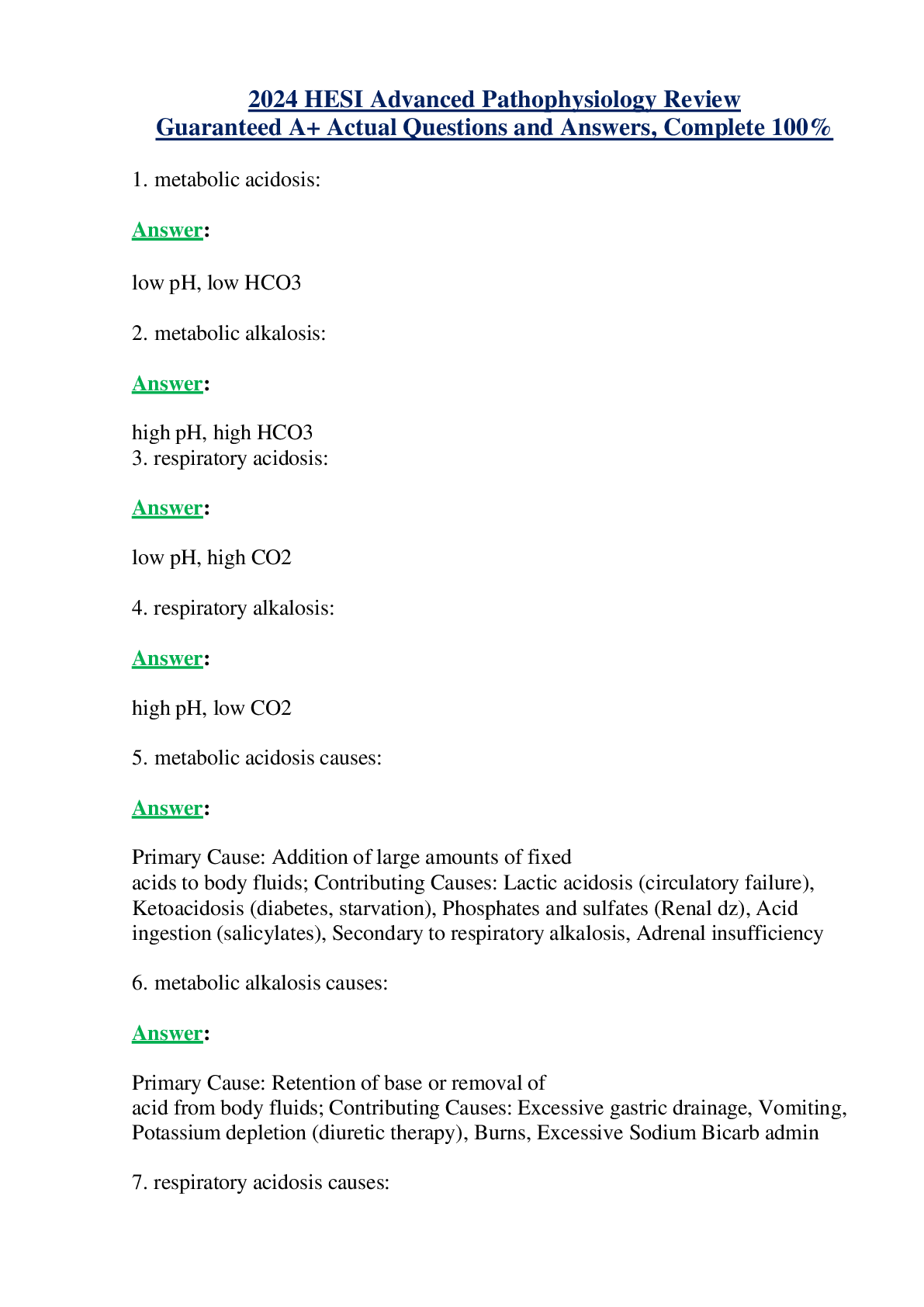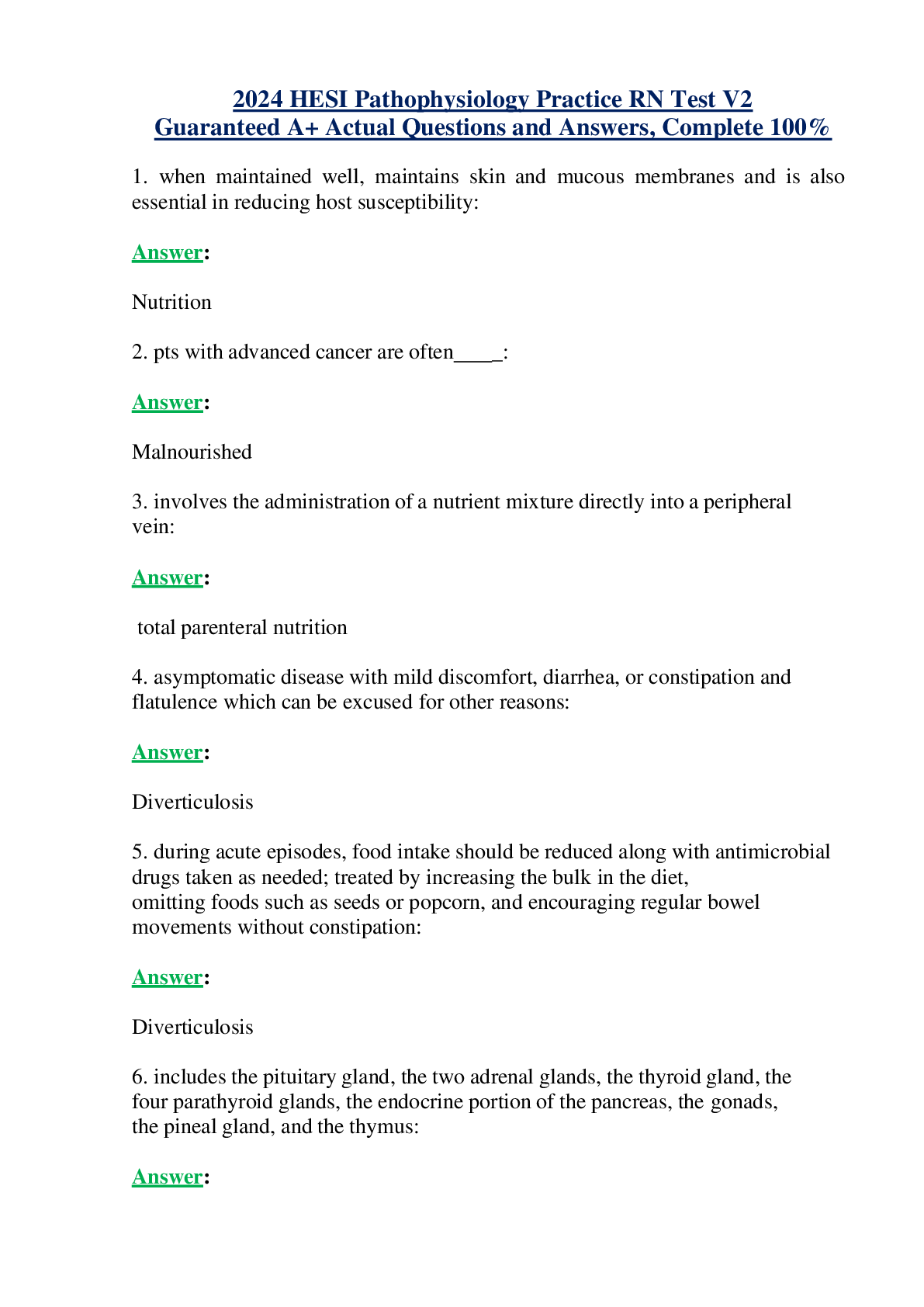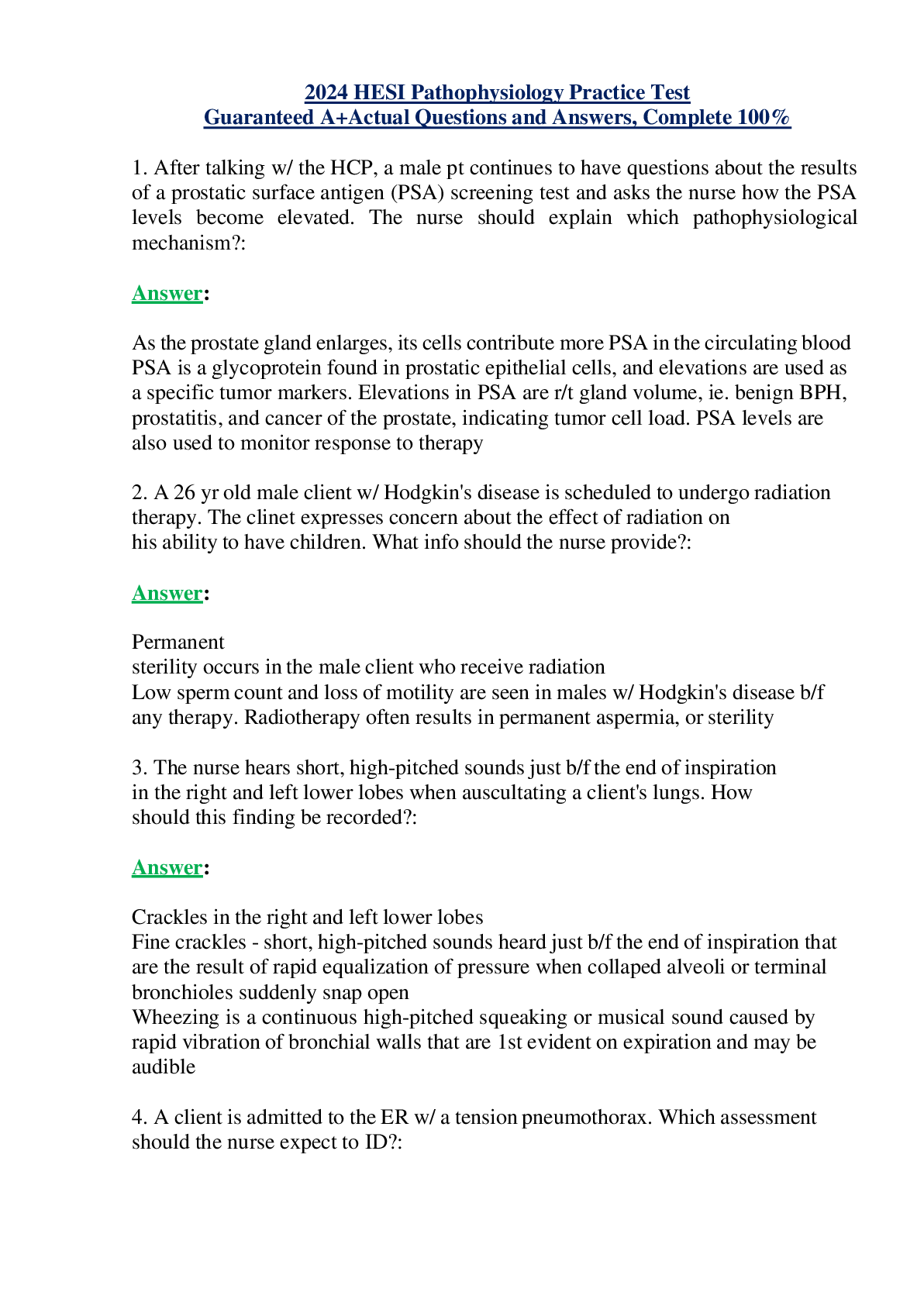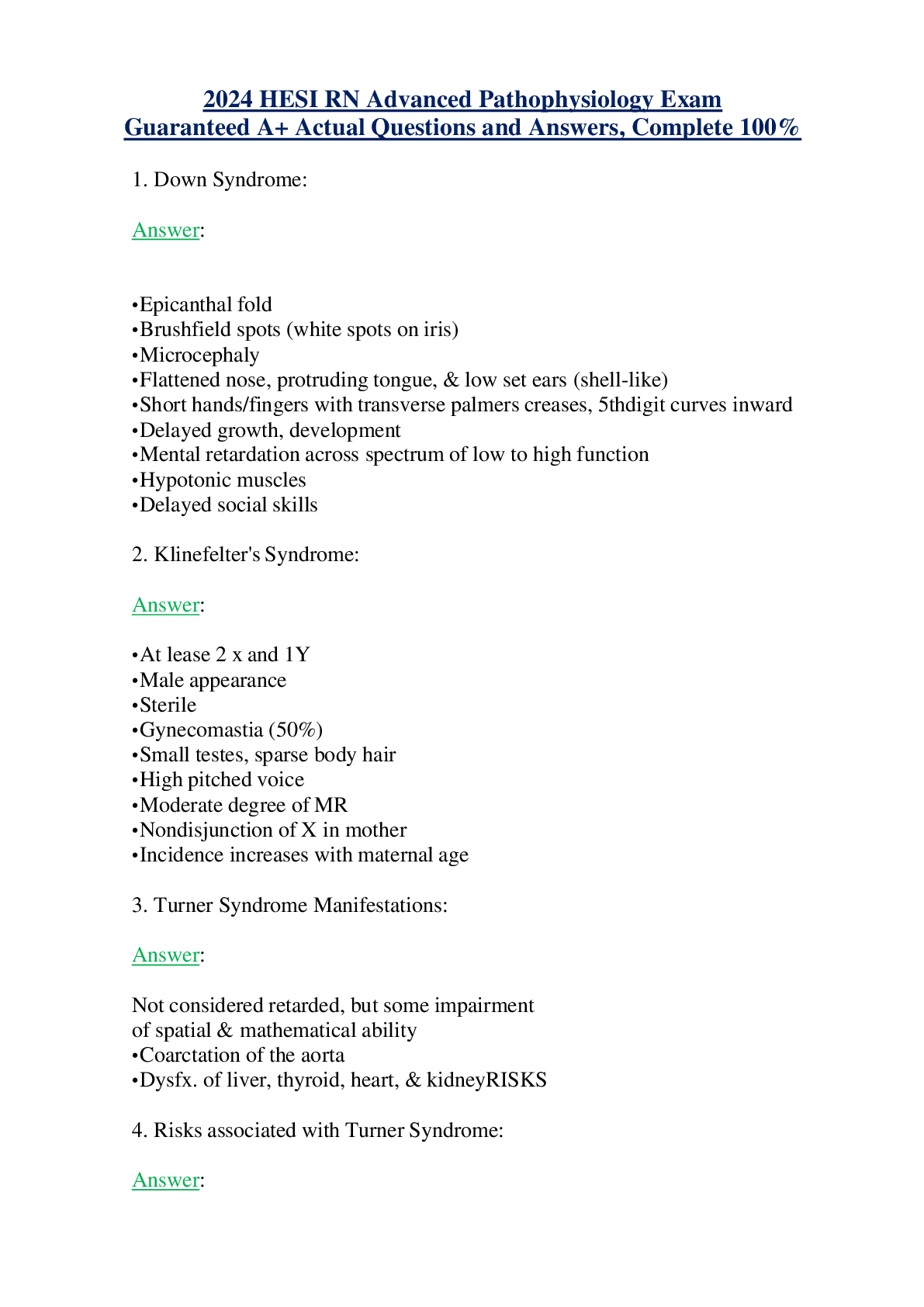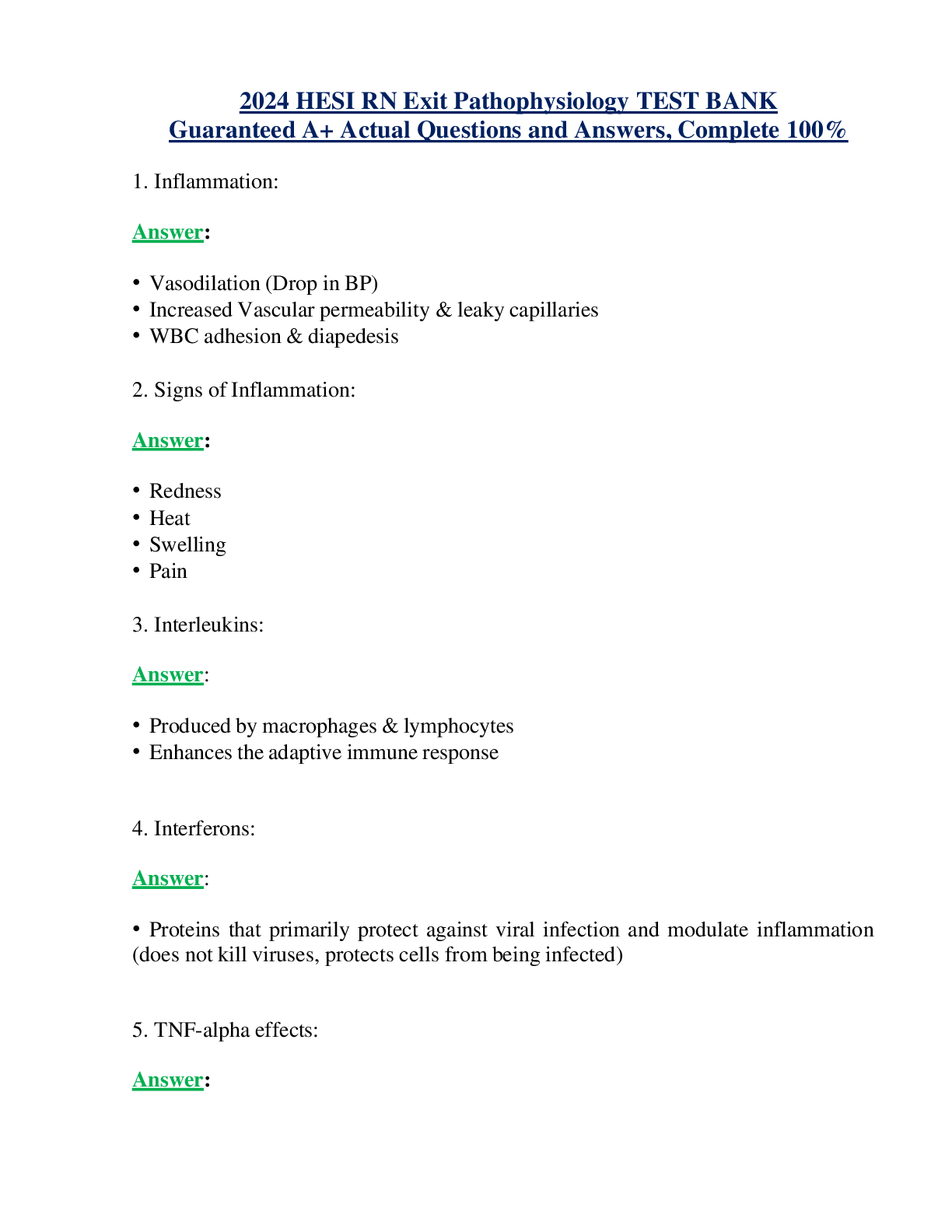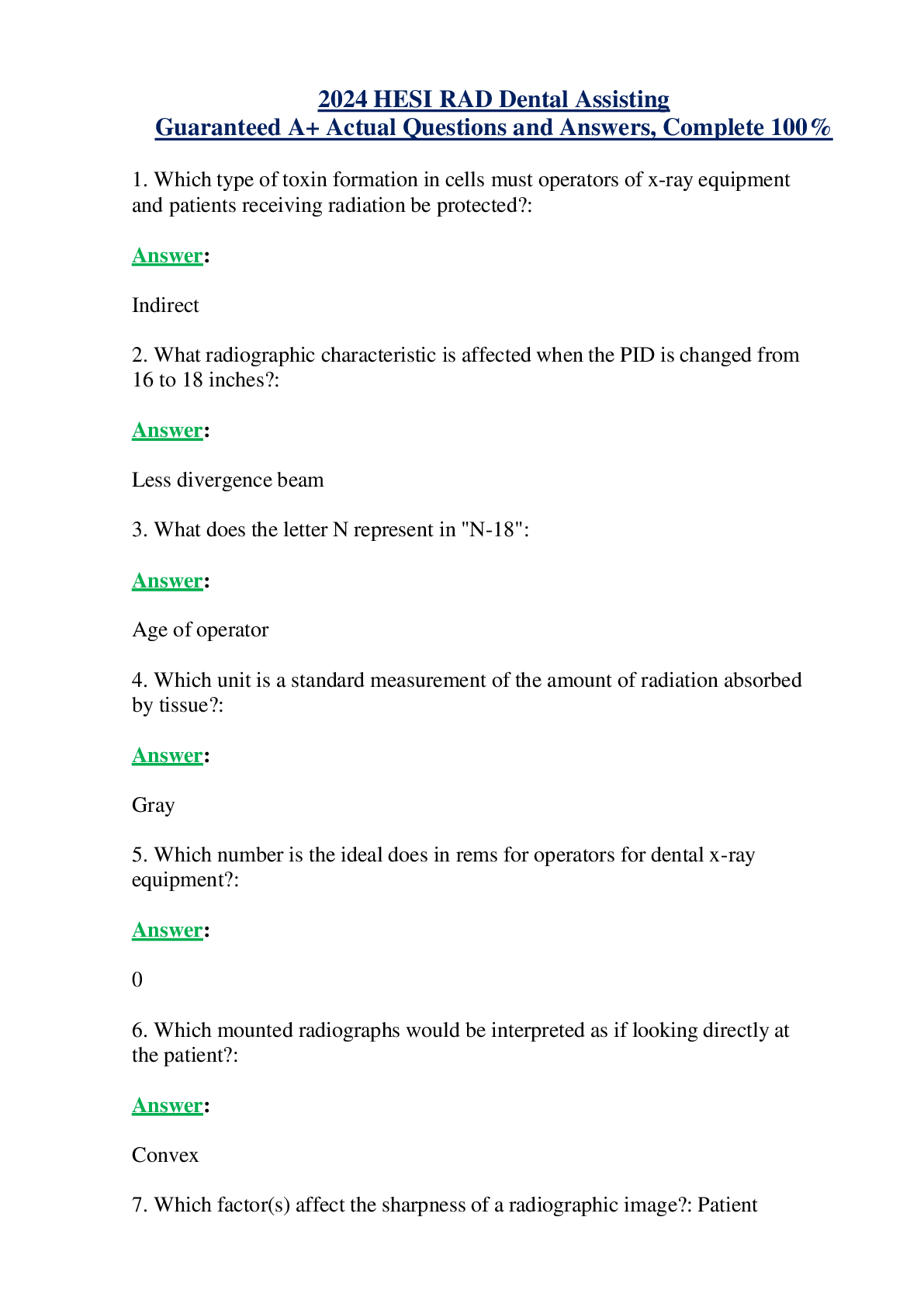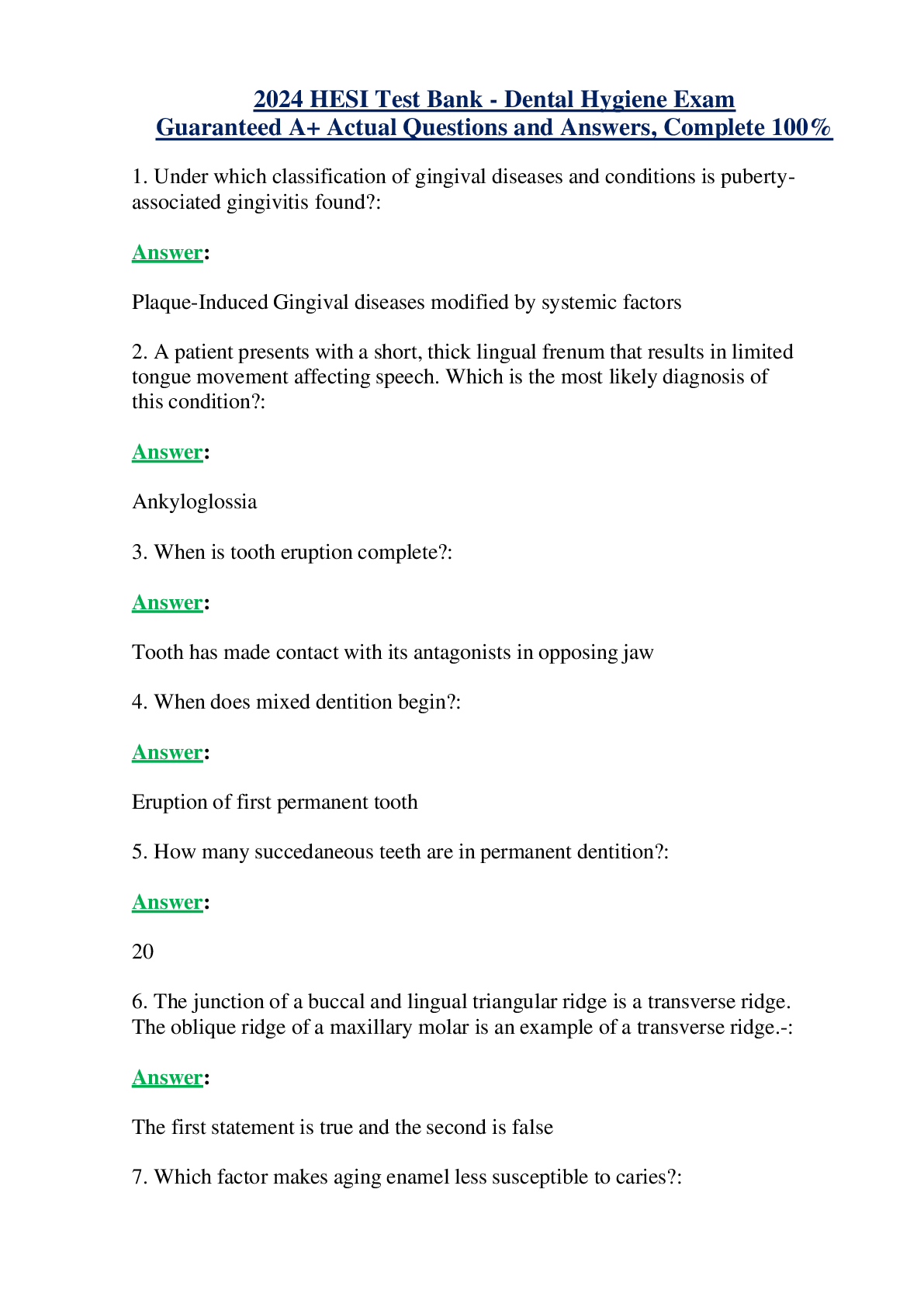HESI > HESI > 2024 HESI Exam Evolve Comprehensive Exam 1 Guaranteed A+ Actual Questions and Answers, Complete 100% (All)
2024 HESI Exam Evolve Comprehensive Exam 1 Guaranteed A+ Actual Questions and Answers, Complete 100%
Document Content and Description Below
1. A client with asthma receives a prescription for high blood pressure during a clinic visit. Which prescription should the nurse anticipate the client to receive that is at least likely to exacerb... ate asthma?: Answer: Metoprolol Tartrate( Lopressor) The best antihypertensive agent for clients with asthma is metoprolol (Lopressor) (C), a beta2 blocking agent which is also cardioselective and less likely to cause bronchoconstriction. Pindolol (A) is a beta2 blocker that can cause bronchoconstriction and increase asthmatic symptoms. Although carteolol (B) is a beta blocking agent and an effective antihypertensive agent used in managing angina, it can increase a client's risk for bronchoconstriction due to its nonselective beta blocker action. Propranolol (D) also blocks the beta2 receptors in the lungs, causing bronchoconstriction, and is not indicated in clients with asthma and other obstructive pulmonary disorders. 2. A male client who has been taking propranolol ( inderal) for 18 months tells the nurse the healthcare provider discontinued the medication because his blood pressure has been normal for the past three months. Which instruction should the use provide?: Answer: Ask the health care provider about tapering the drug dose over the next week. Although the healthcare provider discontinued the propranolol, measures to prevent rebound cardiac excitation, such as progressively reducing the dose over one to two weeks (C), should be recommended to prevent rebound tachycardia, hypertension, and ventricular dysrhythmias. Abrupt cessation (A and B) of the beta-blocking agent may precipitate tachycardia and rebound hypertension, so gradual weaning should be recommended. 3. A client who is taking clonidine ( Catapres, Duraclon) reports drowsiness. Which additional assessment should the nurse make?: Answer: How long has the client been taking the medication Drowsiness can occur in the early weeks of treatment with clonidine and with continued use becomes less intense, so the length of time the client has been on the medication (A) provides information to direct additional instruction. (B, C, and D) are not relevant. [Show More]
Last updated: 4 months ago
Preview 1 out of 39 pages
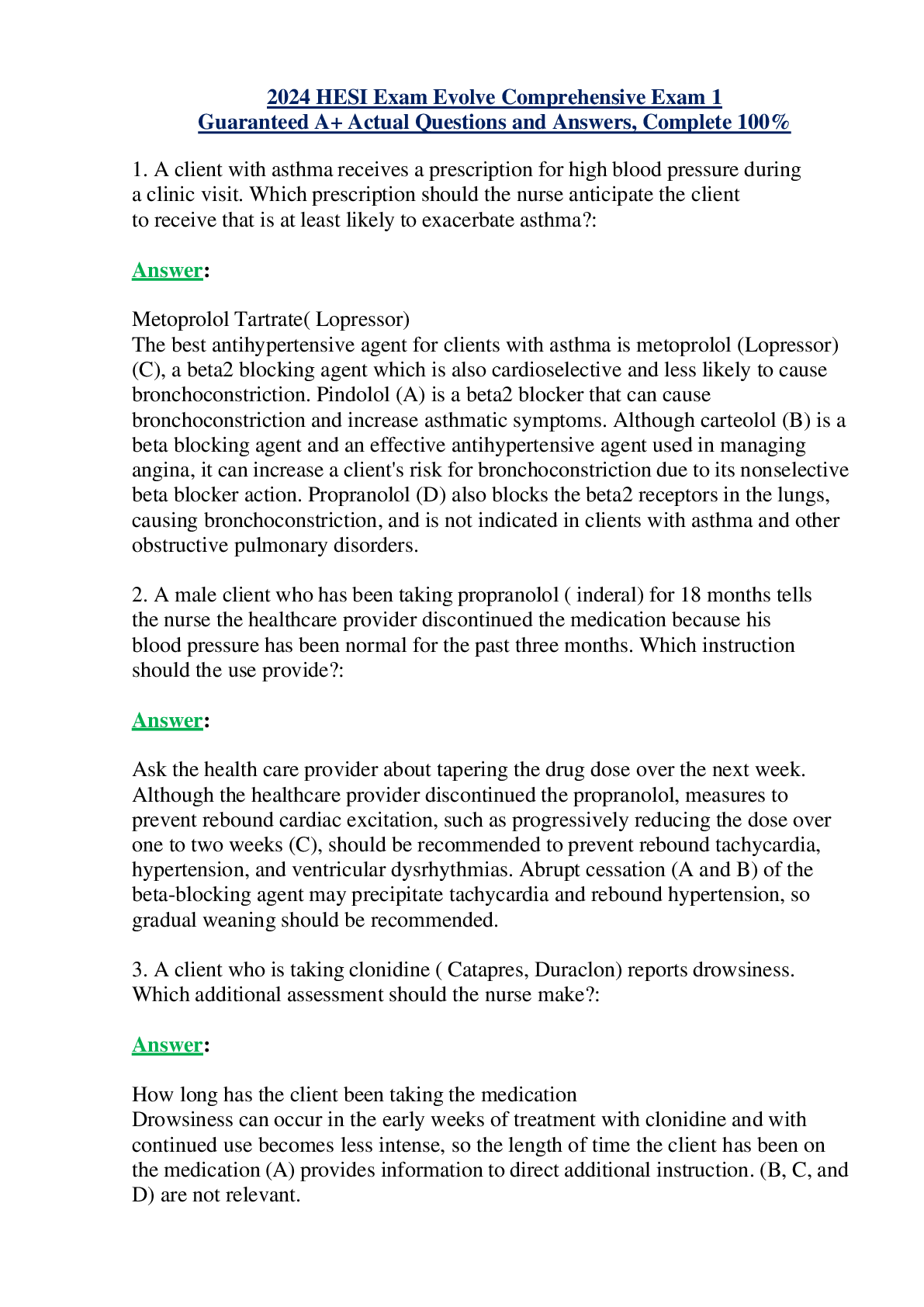
Buy this document to get the full access instantly
Instant Download Access after purchase
Add to cartInstant download
We Accept:

Reviews( 0 )
$14.00
Document information
Connected school, study & course
About the document
Uploaded On
Mar 14, 2024
Number of pages
39
Written in
Additional information
This document has been written for:
Uploaded
Mar 14, 2024
Downloads
0
Views
20

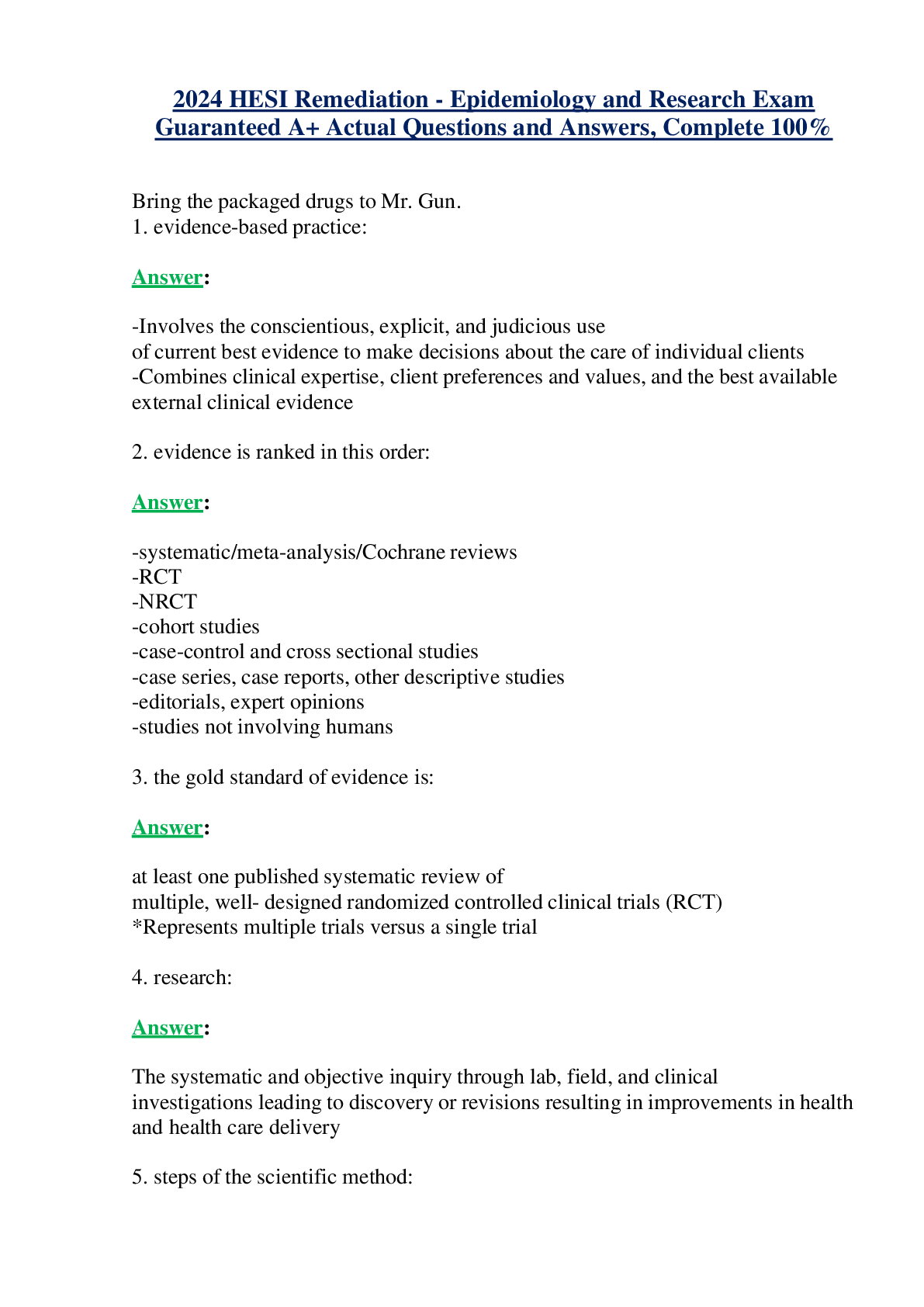
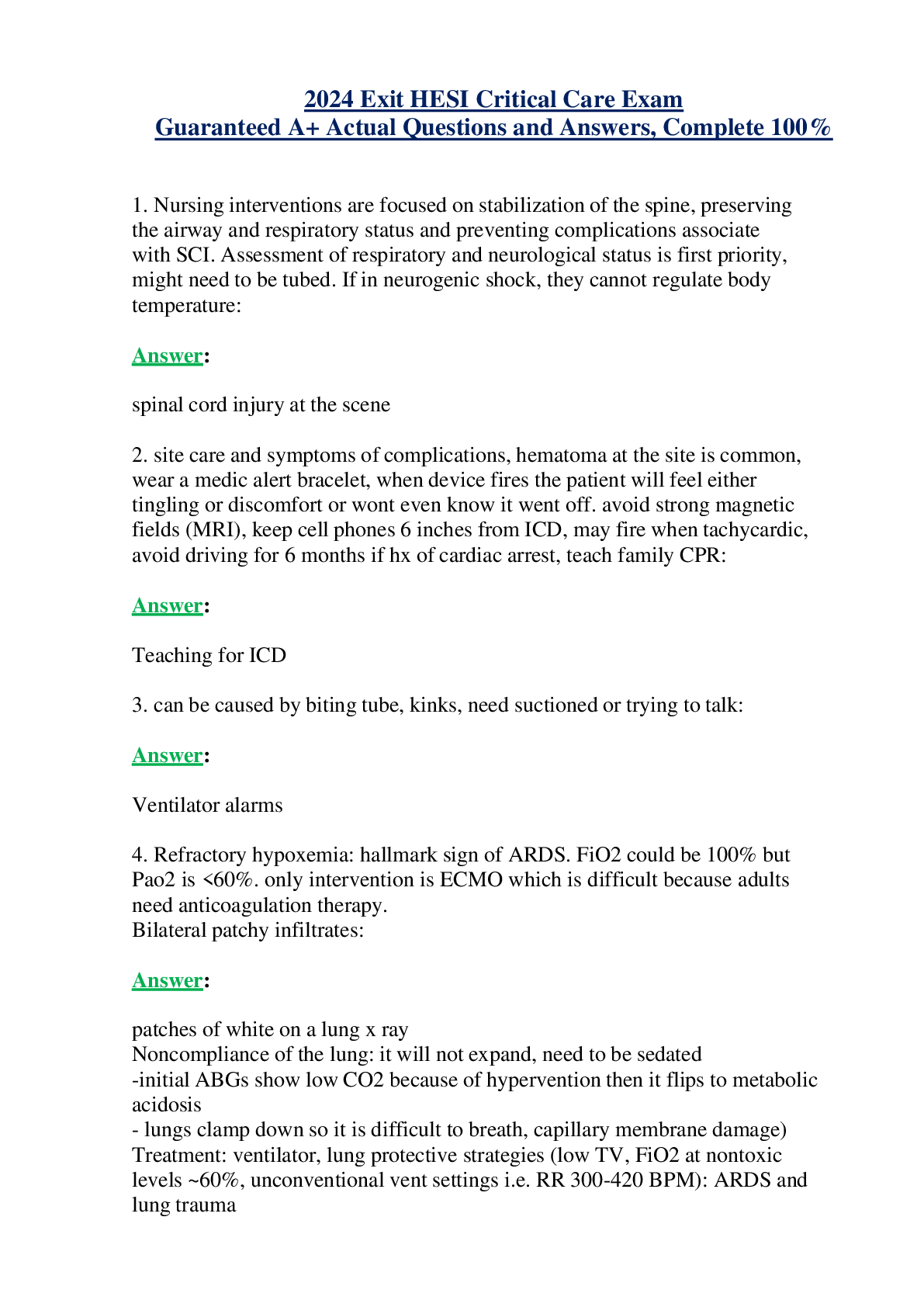
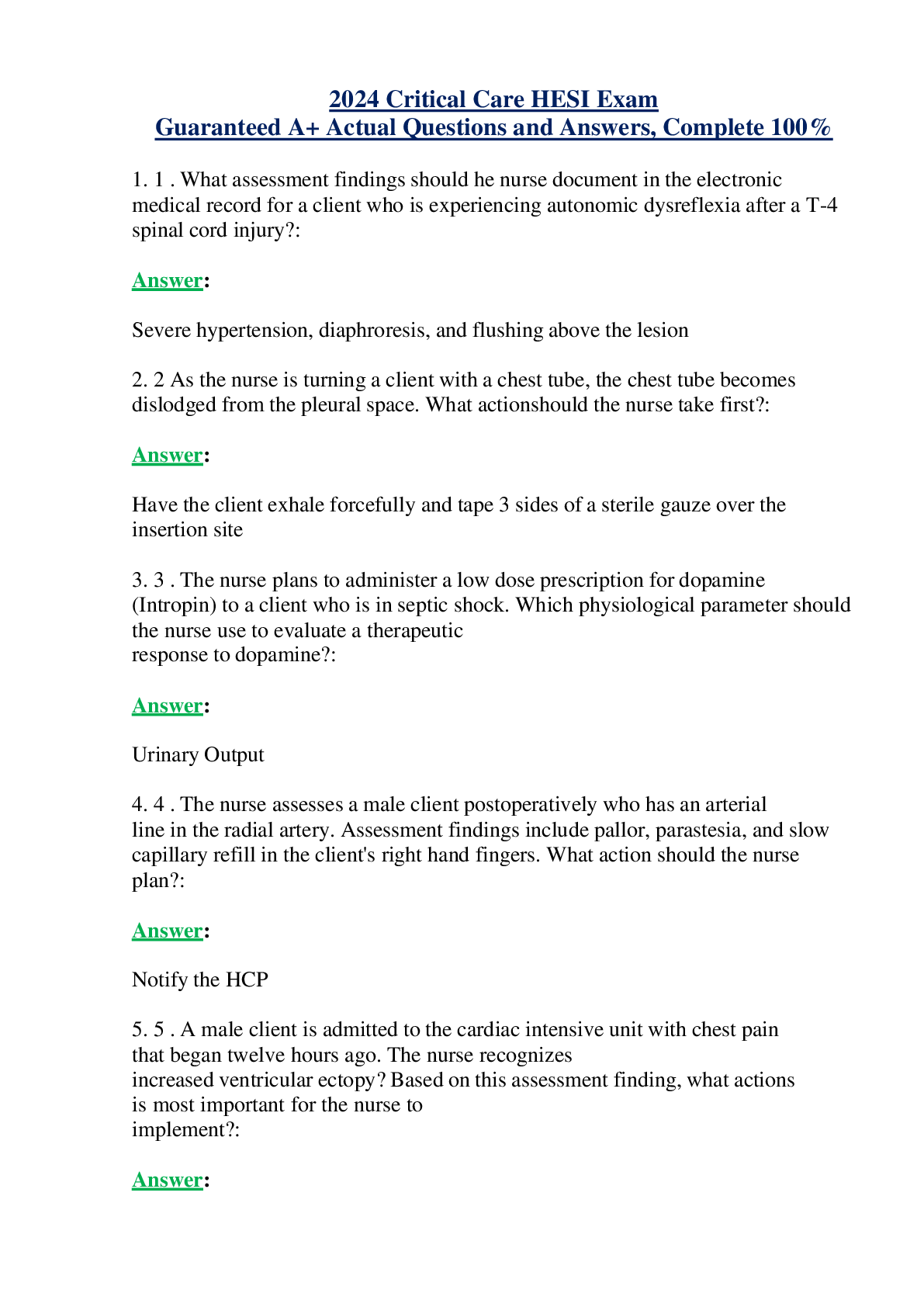
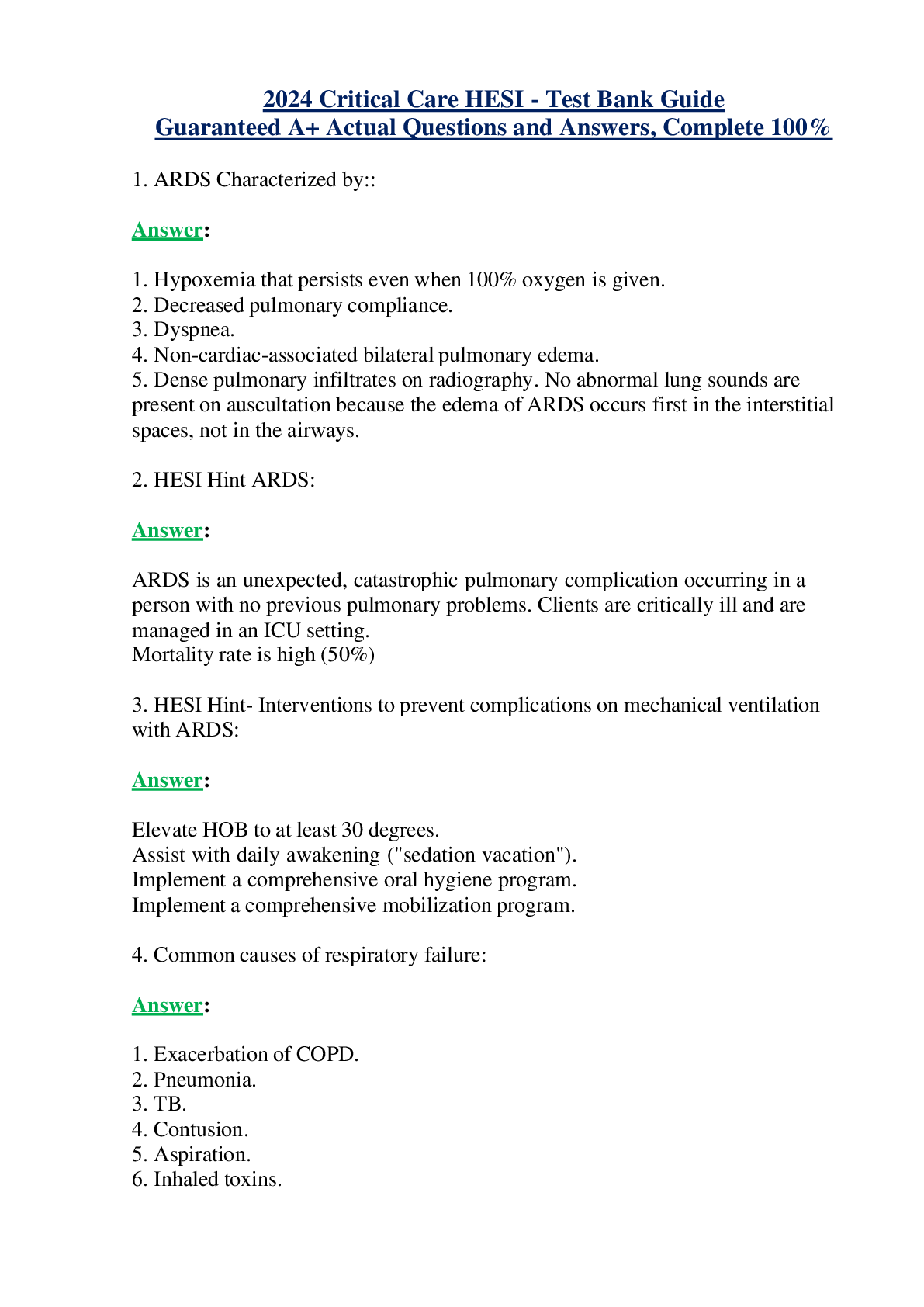
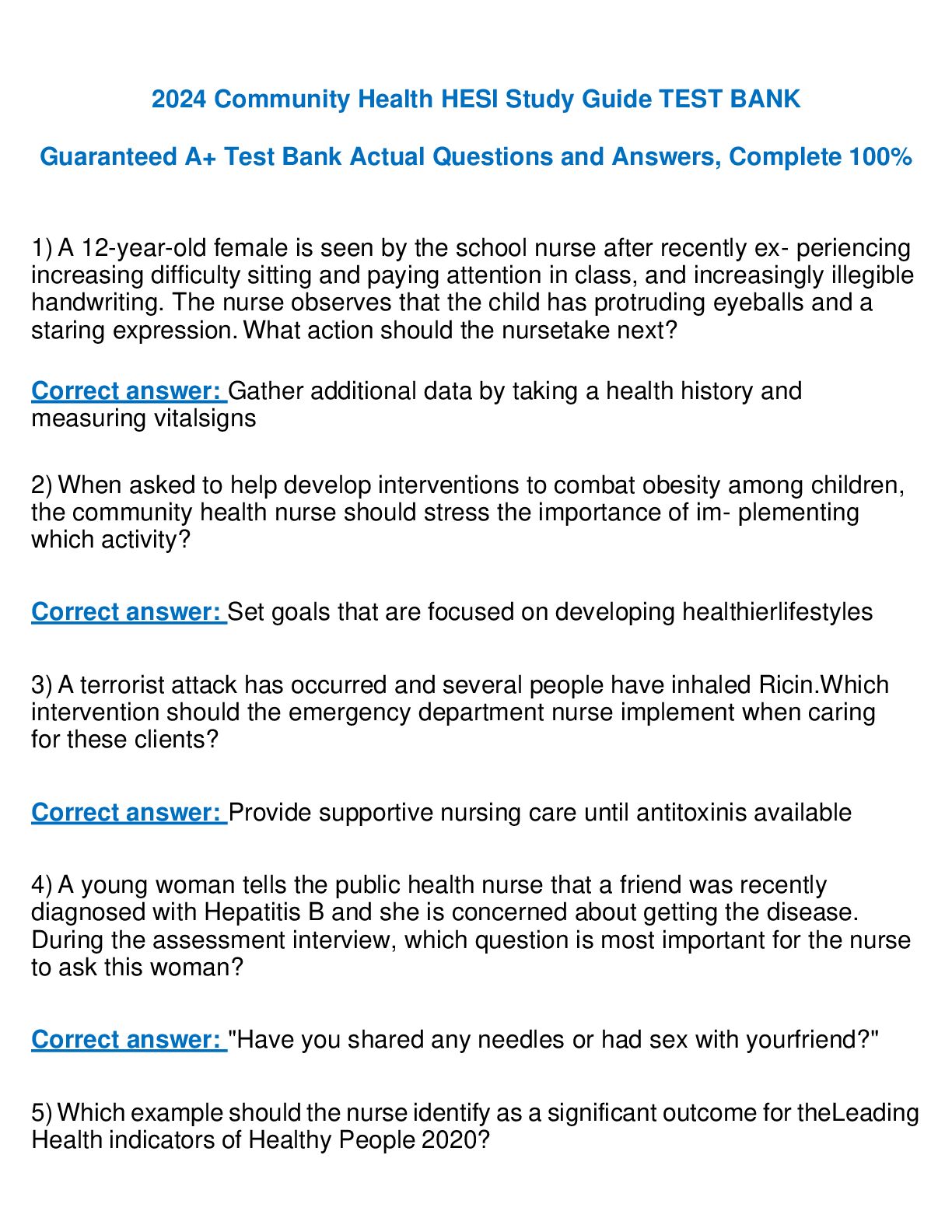
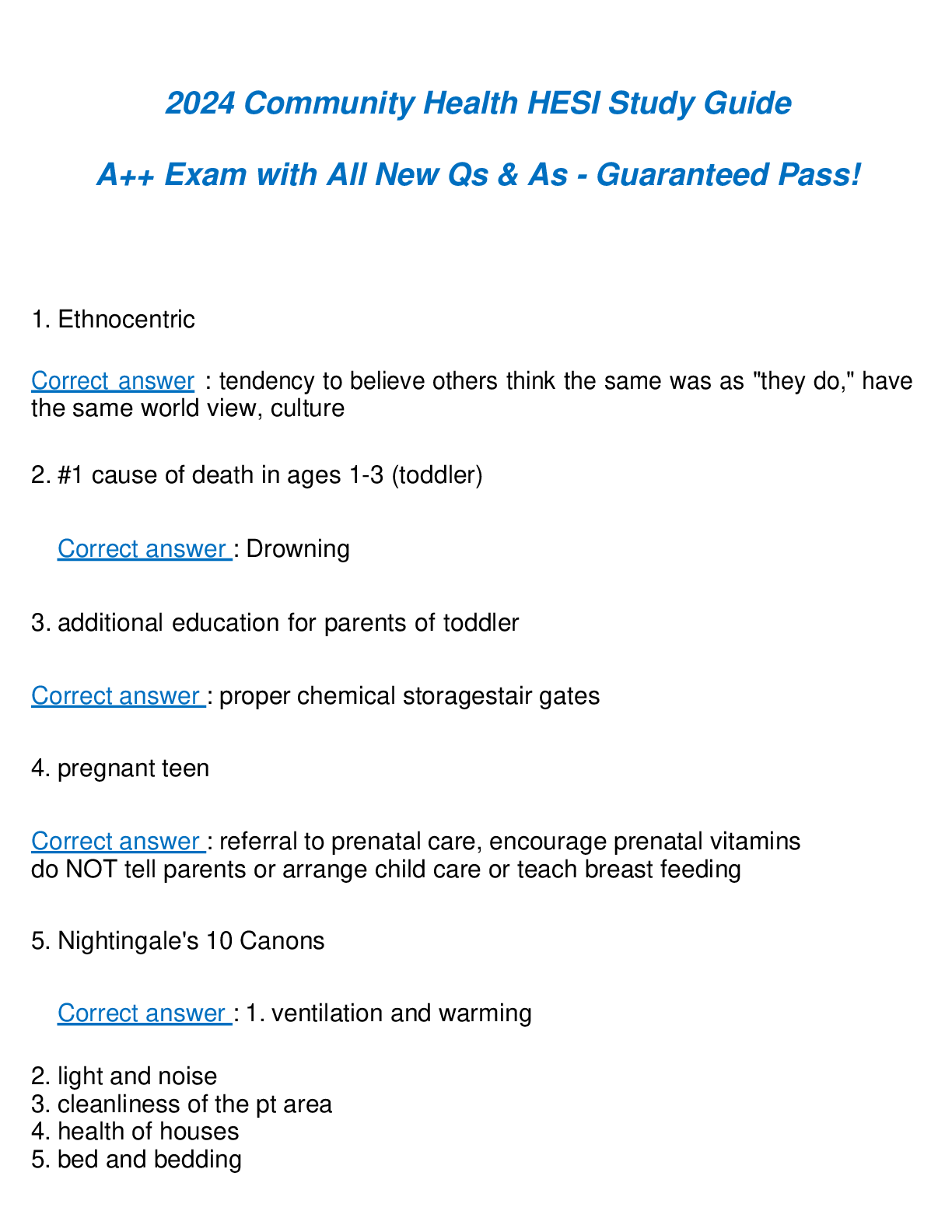
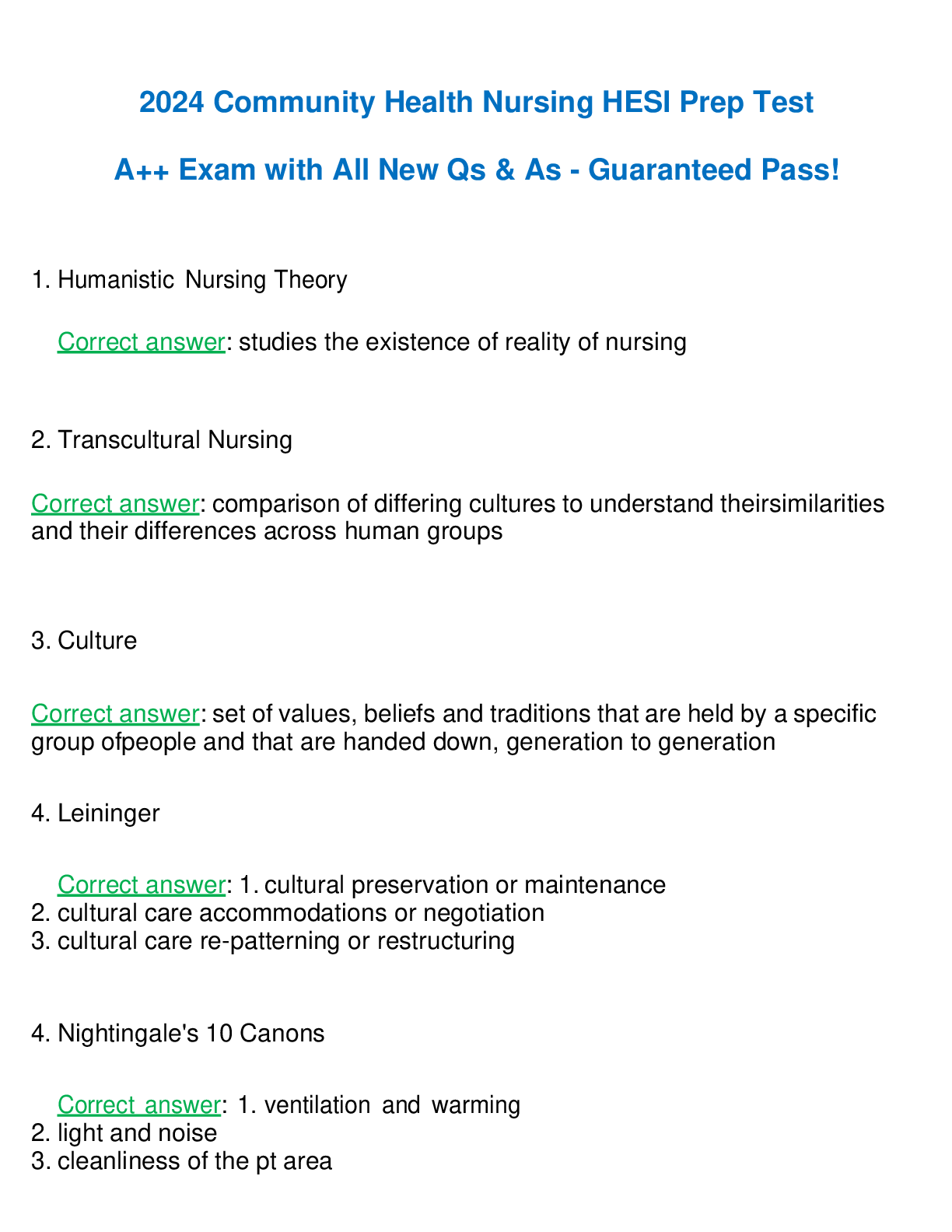
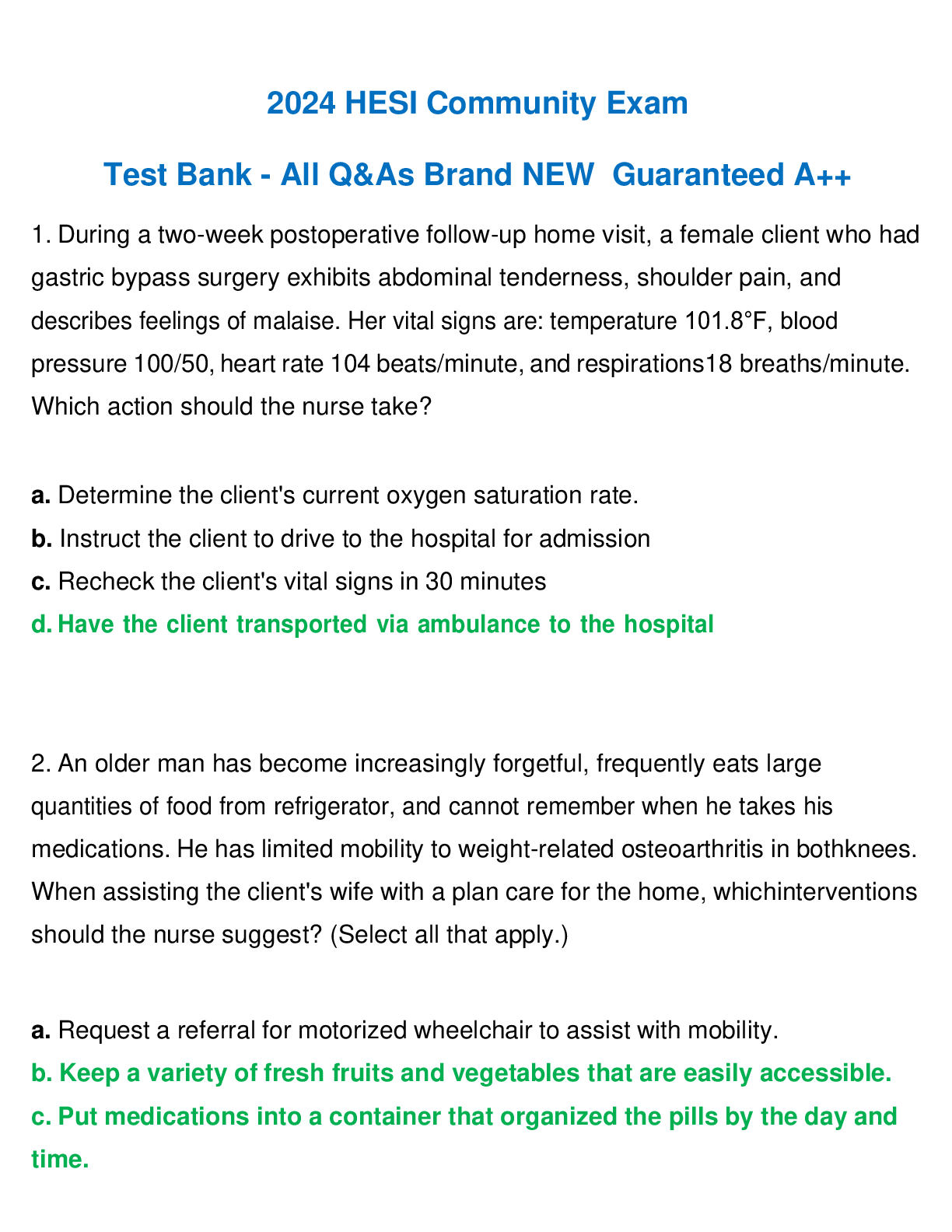
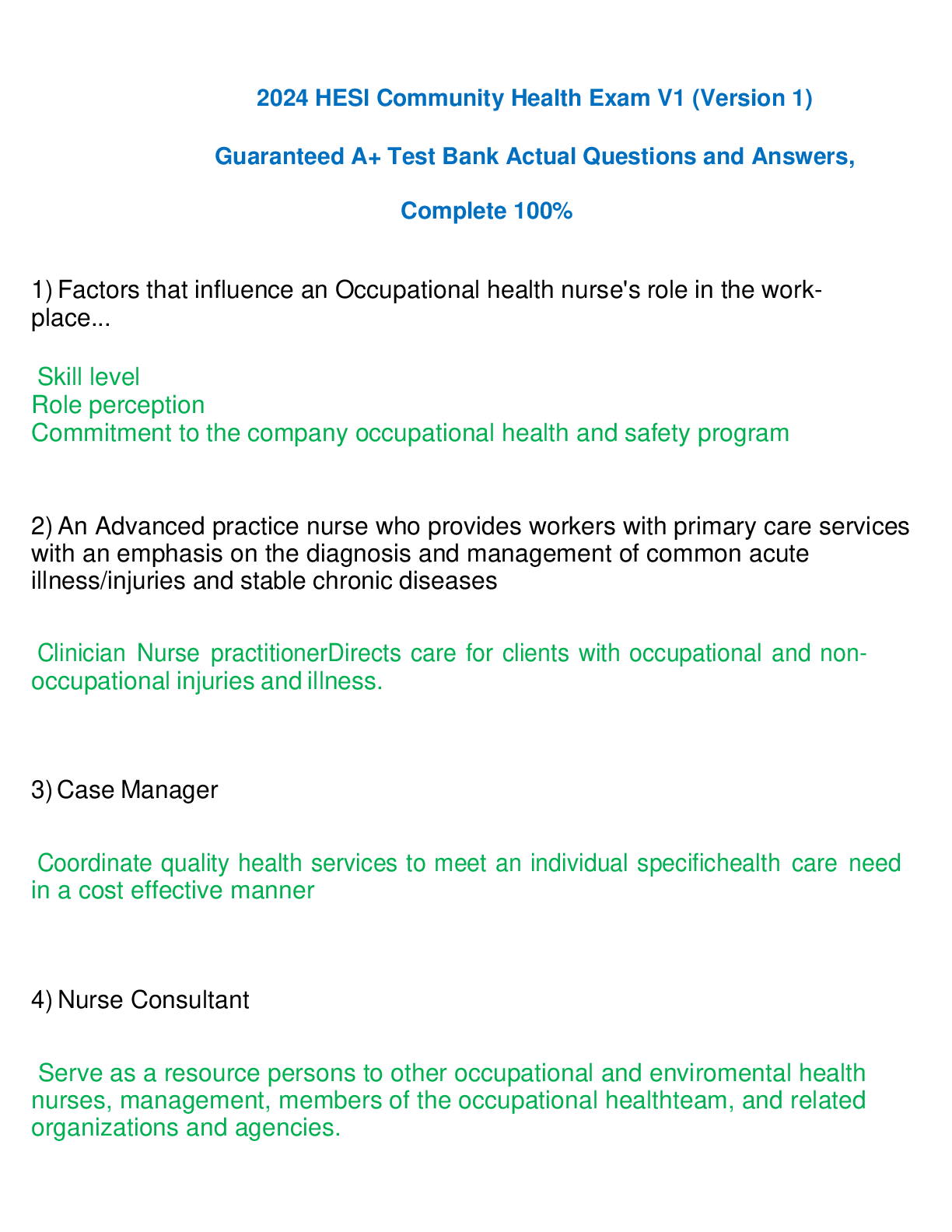
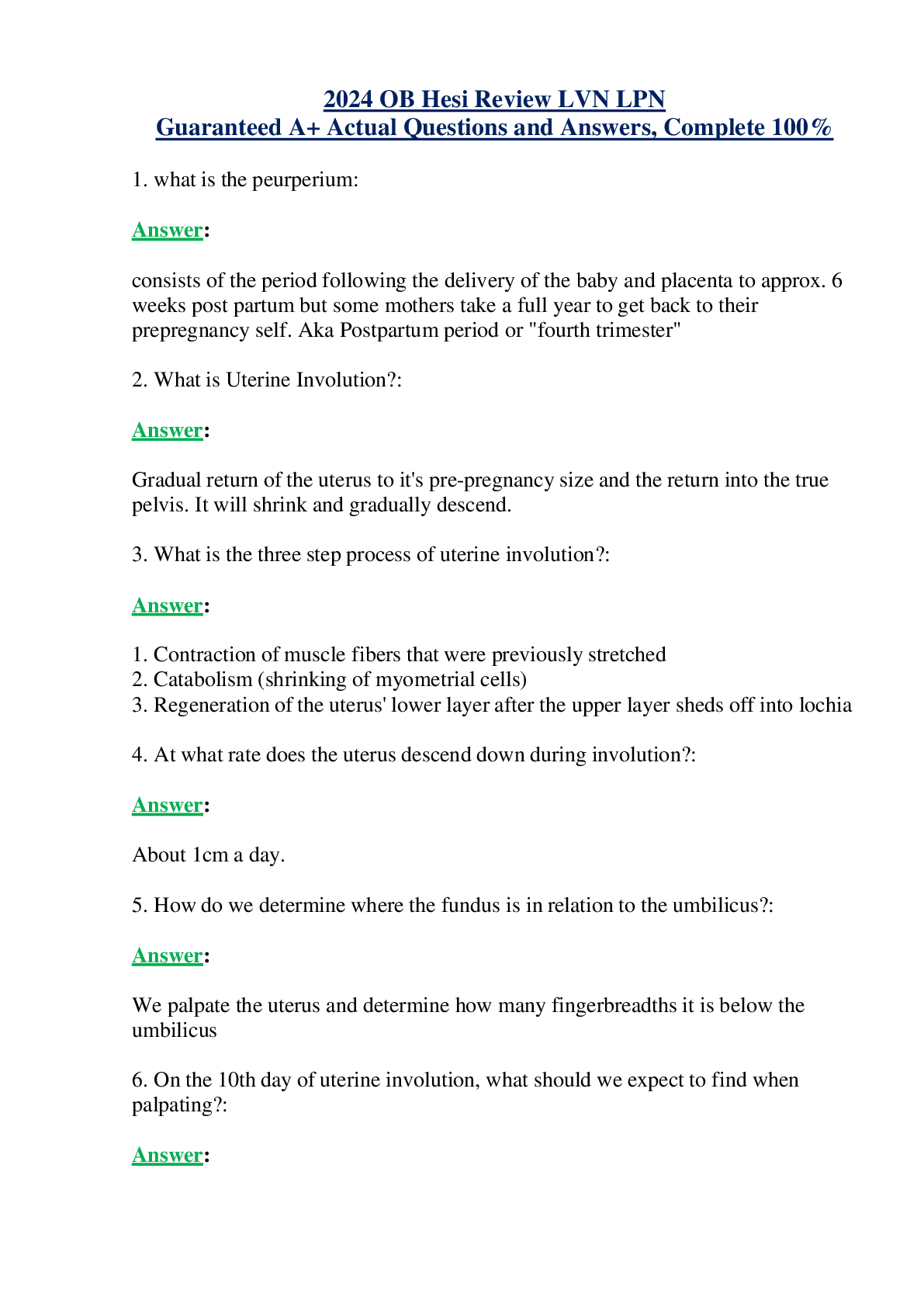
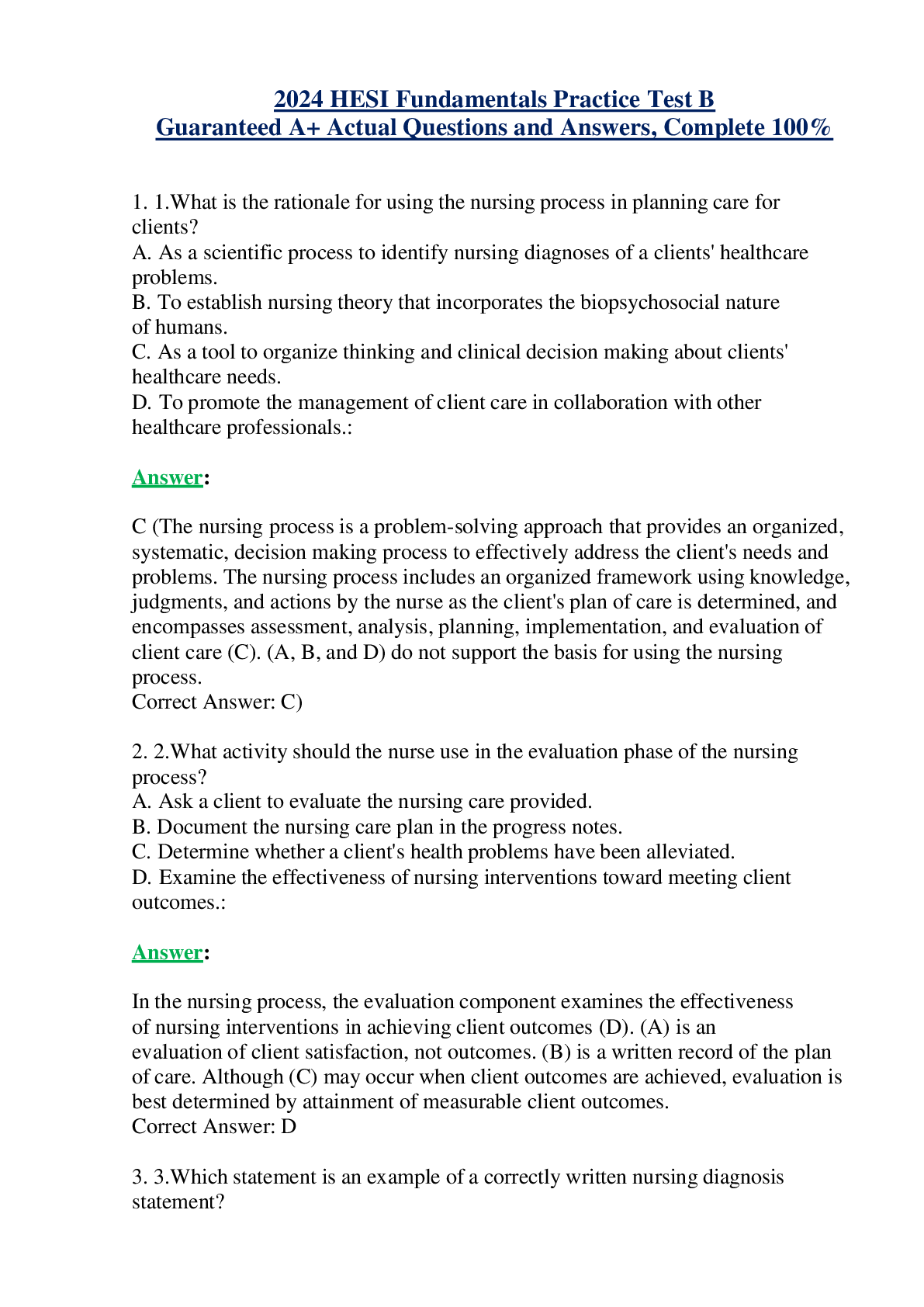
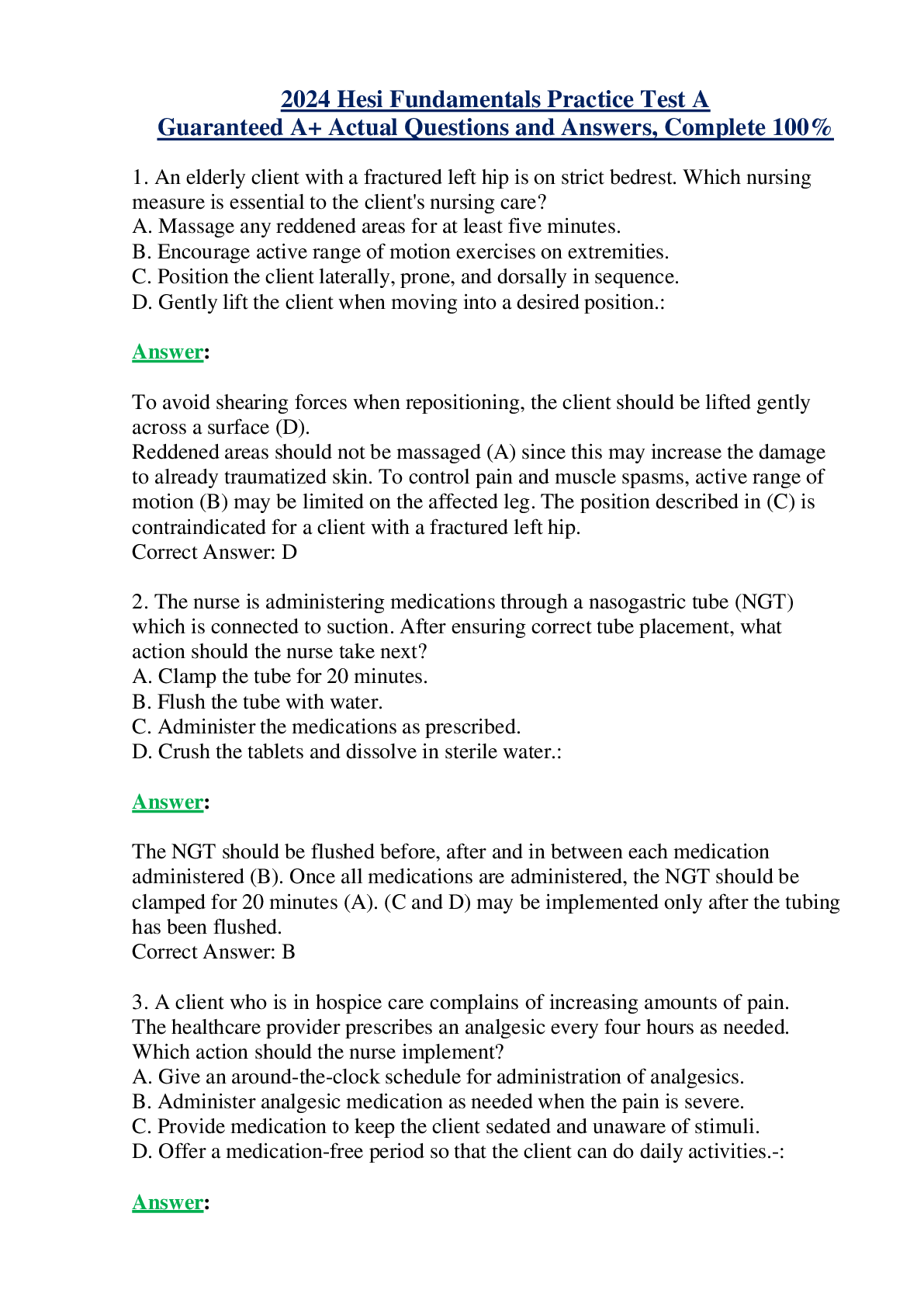
.png)
